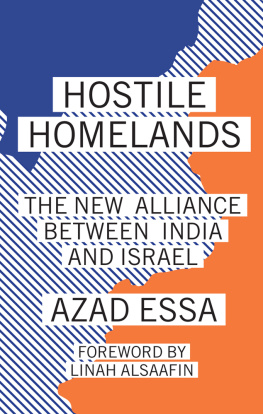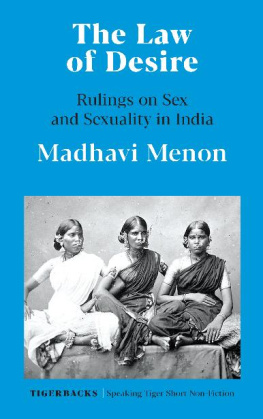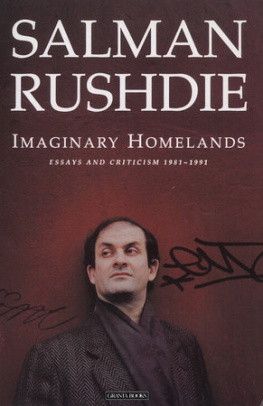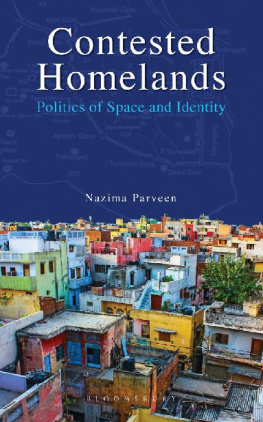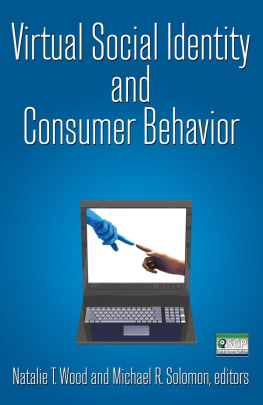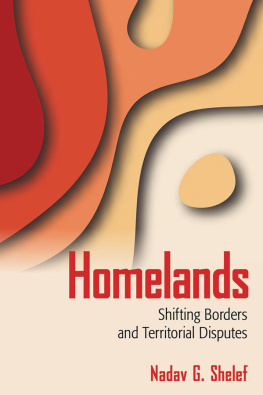Acknowledgments
This book would not have been possible without the support of my family, friends, and colleagues, to whom I am profoundly indebted. I thank Julie DAcci, Michele Hilmes, Hemant Shah, Michael Curtin, and Lisa Nakamura for their constructive criticism and enthusiastic support at the University of WisconsinMadison, where the early ideas for this book were generated. Julie DAcci is an inspiring role model; I am grateful to her for constantly challenging me to think more deeply and write with greater clarity. The innumerable conversations I had with Hemant Shah about diasporic life not only were a source of comfort for me as I was getting used to life in a new country but also greatly enriched my intellectual training and understanding. I am grateful to Michele Hilmes and Michael Curtin for affection, support, and conversations over the years. They are my mentors in every way possible, and their ways of thinking and being in this profession inspire me. Lisa Nakamuras brilliant scholarship has indelibly influenced my research and writing. She is a friend, mentor, and ally who guides my writing with her insights and supports me with her love and kindness.
Mobina Hashmi, Jennifer Fuller, and Shazia Iftkhar enrich my life and work through their friendship, humor, wisdom, and brilliant scholarship. They patiently listen to my ideas, willingly read drafts, give honest feedback, and above all enthusiastically motivate me. I thank Bill Kirkpatrick, Josh Heuman, Ron Becker, Norma Coates, Elana Levine, Michael Newman, Kevin French, Paddy Rourke, Vera Crowell, Vinu Sampath, Melissa Curtin, Venkat Dhulipala, Chris Chekuri, Himadeep Muppidi, and Aswin Punathambekar for their friendship. My gratitude also goes to Kirin Narayan, V. N. Rao, Sunaina Maira, Purnima Mankekar, Yeidy Rivero, Sangita Gopal, Srivi Ramasubramanium, Mary Gray, Kamran Ali, Pauline Strong, and Simone Browne. Radhika Gajjala mentors me in her inimitable stylewarm, witty, and no-nonsense all at the same time. Paddy Enjeti, thank you for predicting that I would write a book, way before I had any idea that I would go down this path!
I thank my colleagues in the Radio-TV-Film Department at the University of TexasAustin for their support and encouragement. Special thanks to Karin Wilkins, Joe Straubhaar, Lalitha Gopalan, Nancy Schiesari, Sharon Strover, Laura Stein, Jennifer Brundidge, Janet Staiger, Charles Ramirez Berg, and Paul Stekler. Tom Schatz has been an incredible mentor and guide; I am grateful to him for helping me navigate professional challenges and for reminding me to keep my focus on research and writing. For their integrity, friendship, and unflinching support I thank Mary Kearney, Michael Kackman, Mary Beltrn, and Wenhong Chen. At UTs Center for Asian American Studies, I have an amazing intellectual and political community that sustains me. My heartfelt thanks to Madeline Hsu, Nhi Lieu, Julia Lee, Naomi Paik, kt shorb, Kim Alidio, Kamala Visweswaran, Sharmila Rudrappa, Eric Tang, and Snehal Shingavi. My students have influenced my thinking and writing over the years; I thank them all. In particular, I thank Alex Cho, Caitlin McClune, Jacob Hustedt, Manuel Avila Santiago, Ali Sengul, Suzanne Schulz, Ricky Hill, and Natasha Raheja for engaging me in incredibly productive ways. The research and writing for this book were supported by fellowships and grants from the Center for Asian American Studies, the South Asia Institute, the Office of Graduate Studies, the College of Communication, and the Humanities Institute at UT-Austin. Their generous support provided me with the time and funds that I needed to complete this project.
At the University of Illinois Press, I am grateful to Vijay Shah, my editor, for his enthusiastic commitment to my project from the beginning. My sincere appreciation goes to Laurie Matheson, Jennifer Comeau, and Dawn Durante for all their help and support. Many thanks to the anonymous reviewers of the manuscript for their insightful comments and helpful suggestions. Thanks to David Lobenstine and Jane Curran for their expert copyediting and to Sheila Bodell for compiling the index.
I am indebted to series editor Jigna Desai for her sustained investment in my project and for being my friend, mentor, and advocate. She encouraged me to keep writing when I thought I could not, kept me on track through her gentle yet firm guidance, read drafts of chapters, provided incisive feedback, and, perhaps most importantly, trusted my voice.
I am grateful for my wonderful family in Hyderabad, Mumbai, Austin, and Chapel Hill. Radha and Vijay, thank you for always being there for me. Your love, encouragement, and steady support, combined with a tactful questioning of my work life, provided the emotional cushion I needed to write this book. Vasu, thank you for being the quiet inspiration behind this project. Your pathbreaking e-commerce company and your pioneering vision for networked Indian homes in the digital age influenced me tremendously. Shreya, Aniket, Sangita, and Sanskrita, you bring joy to my life. PCji and Radha, thank you for everything. Thank you, Heidi Siegenthaler, for being a part of our family. You lovingly take care of my daughter so that I can work, think, and write. I cannot thank you enough.
My deepest debt of gratitude is to my partner and the love of my life, Shanti Kumar. I undertook the daunting task of embarking on this project and conducting new research in the same year that I became a mother. I had no idea how difficult it would be! If it werent for Shantis unflinching faith in my ability to overcome challenges, I would not have been able to finish this book. Thank you, Shanti, for nurturing me with your love, sparkling wit, and delicious recipes and for single-handedly running the household during my intense writing sessions. Priya, there is no one more precious than you. Thank you for showing me how to live in the moment! Your love and my desire to play with you motivated me to get to the finish line as soon as possible. I am indebted to my father-in-law and mother-in-law for showing me how to live life fully and fearlessly through the practice of meditation. Their guidance has been invaluable to me during the ups and downs of writing this book. My parents are a constant source of love and inspiration in my life. I could not have started this book without their blessings and support, let alone finish it. I dedicate this book to them.
Virtual Homelands


 This book is printed on acid-free paper.
This book is printed on acid-free paper.
